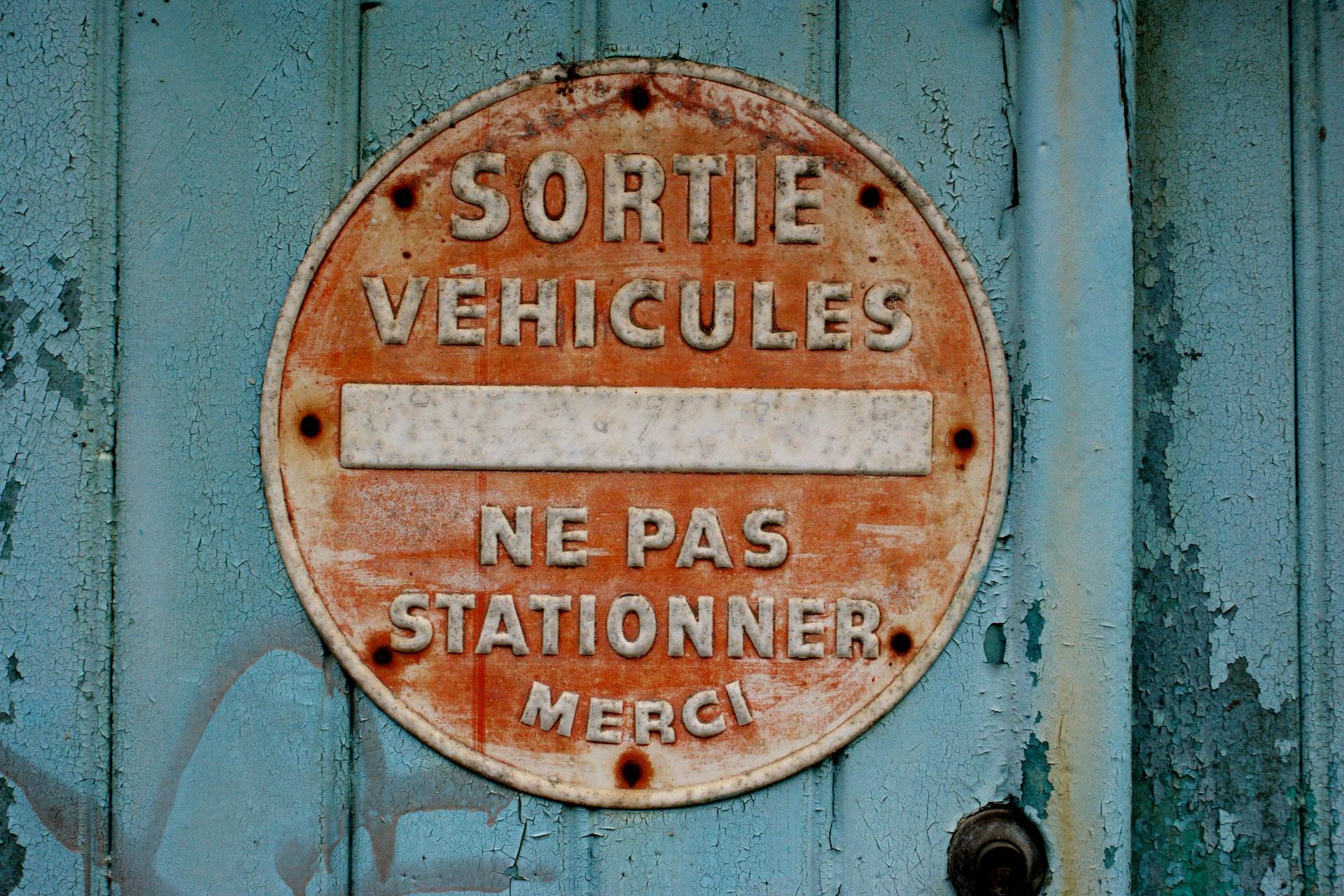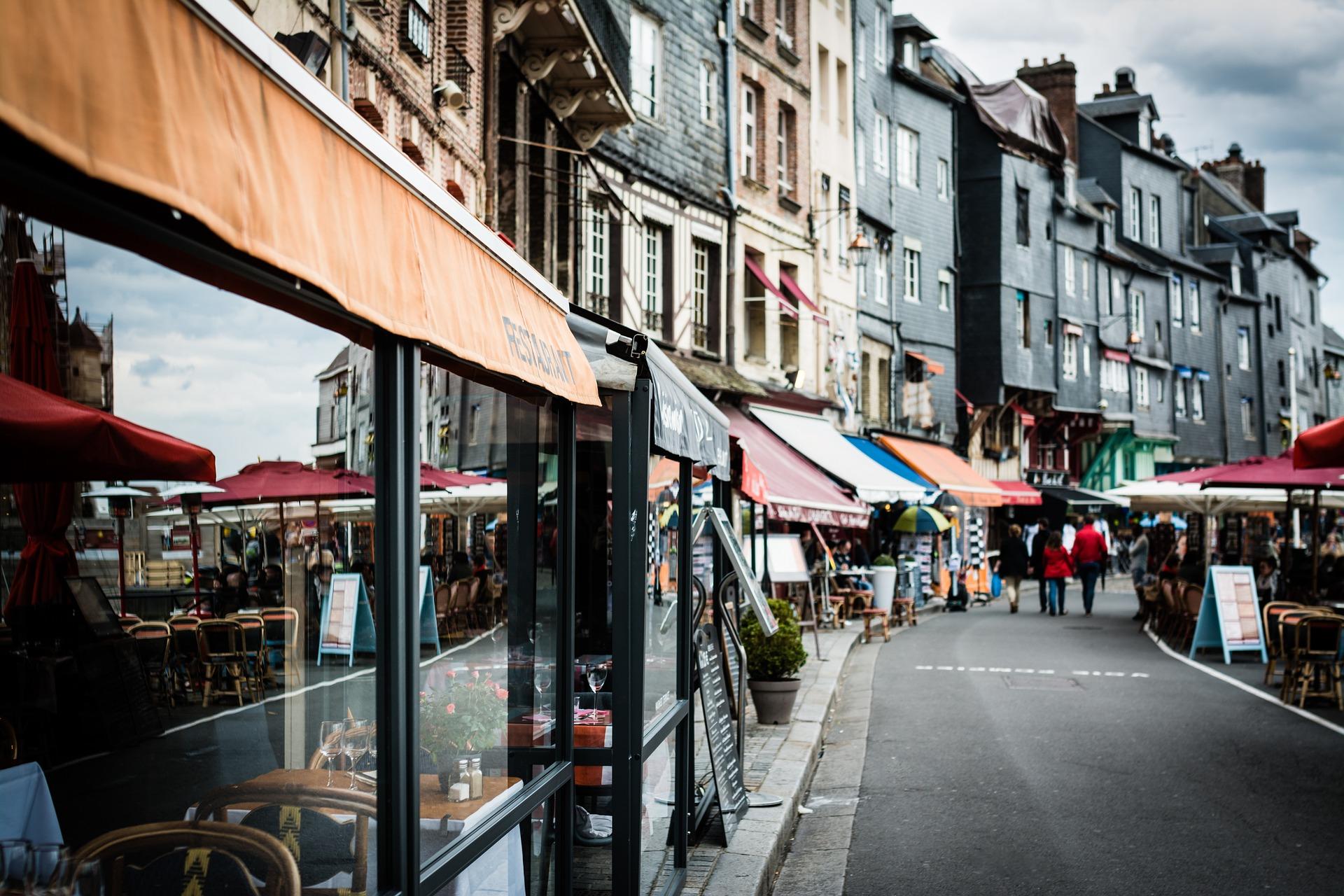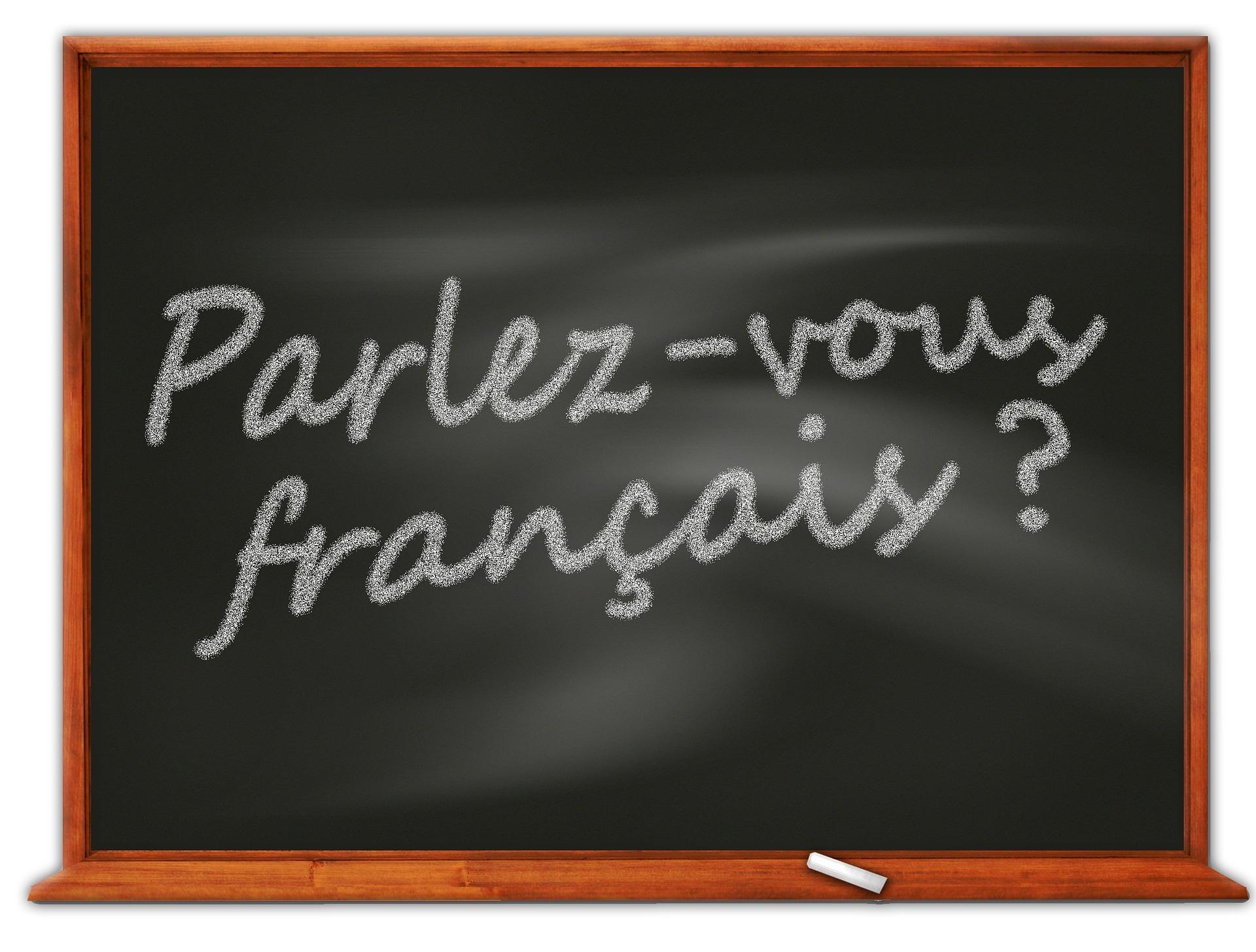This French joke has been around forever. It has to do with two brothers, Tagueule and Politesse. The latter needs to relieve himself before entering the church so his brother tells him to go behind the building.
The joke makes no sense unless you know that Tagueule means 'shut your face'. The priest asks this youth what his name is; 'Shut your face!' is the reply. The priest despairs: "Where's the politeness?". Native French speakers know the punchline: "Politesse is taking a dump behind the church."
Only a culture that revolves around politeness could pull off a joke like that. Of course, you might debate French culture being formal and polite when seeing clips of angry protesters on social media. One must immerse themselves in French life and learning to see:
- the degrees of formality that underpin French society
- how a French 'thank you' conveys more than gratitude
- how courtesy is an essential part of life in France
- how even greetings and farewells follow cultural norms
A 2016 article in France TV (in French) underscores our point. It bemoans the slide towards vulgarity in political discourse. Politicians today may feel that they can only make an impact by resorting to vulgar language. One prominent French politician begs to differ.

The Significance of Politeness in French Culture
It was the scolding heard around the world. In 2018, French President Emmanuel Macron took a schoolboy to task for lobbing an informal greeting his way. As a representative of the land's highest office, he insisted on being called M. le Président.
We could argue about whether he was right or wrong to embarrass this youth. We could even debate whether it was a matter of politeness or respect - for him or for the office. But we can't deny that insisting on politeness is integral to French culture.
Indeed, it's baked into French grammar. Vouvoyer - honorifics, in English, entail addressing persons of higher standing with 'vous' rather than with 'tu'. Such persons include the elderly, higher-ups at work and other people in authority positions. For instance, you would use 'vous' when talking with your French teacher unless they instructed you to do otherwise.
When you're in France, you should never fail to greet a store owner. For a small shop like a newsagent, saying 'bonjour' as you walk in is the norm. For supermarkets, you would greet anyone you transact with, from the meat counter to the cashier. Don't forget to say 'merci' for the service you receive and 'au revoir' as you walk away.

Saying "Merci": Unveiling the Art of Gratitude
In English, we have several ways to express gratitude beyond the standard 'thank you'. For casual situations, 'Thanks' works fine. Some people prefer delivering self-centred thanks: "I really appreciate...". If you'd rather not start your thanks with "I", you can use "much appreciated", instead.
In France, 'merci' is reflexive. If someone hands you something, gives you directions or does something for you, 'merci' must fly out of your mouth. To show deeper gratitude, you can append it with 'bien'. "Merci bien!" means 'thank you so much'.
These two 'merci's serve for just about every occasion. For more personal events or happenings, you should specify what you're grateful for. For example, if someone invites you to dinner, you would end the evening with "Merci pour un repas merveilleux!" (Thank you for a wonderful meal).
This goes for any situation. If you're grateful for someone's help, "Merci pour ton/vôtre aide". Should you have a spot of trouble and need a non-judgmental ear, thank them with "Merci pour m'avoir écouté(e)".
Thanking someone for their trouble is even more elaborate. "Je dois vous remercier pour avoir prendu la peine... " is 'I must thank you for taking the trouble... '. You would thank your boss using this 'Je dois vous remercier pour... ' construction.
You may change it a bit with 'bien' and still keep on the formal side of things. "Je vous remercie bien pour... " means "I thank you well for... ". In fact, you can deepen your sentiment by adding 'bien' or 'beaucoup' to just about any expression except 'Au revoir'.

"Bonjour" and "Au Revoir": Polite Greetings and Farewells
However, you can use 'bien' when saying goodbye. "Je vous souhaite bien le bonjour" is a formal way to part company. This phrase means "I wish you a good day".
It sounds a bit outdated; indeed, it's not a phrase to use in every situation. Your elderly neighbor would smile at hearing it. Otherwise, it's a great way to express irony.
If you're uncertain which degree of formality to greet and bid farewell with, stick with 'bonjour' and 'au revoir'. Phrases like 'À bientôt!' and 'À la prochaine!' are casual ways to part company. They both hint that you will see the person you're saying goodbye to again. They are "Until soon!" and "Until next time!", respectively.
For very casual partings, you could toss out "À plus tard!" or "À tout à l'heure!". These work especially well if you'll meet the person you're parting from in a few hours. You might try slangy text message signoff 'A+', shorthand for the first phrase. They all mean 'See you later!'.
'Salut!' serves as both hello and goodbye, especially among good friends. The younger crowd makes ample use of 'Salut', but only amongst themselves. It would never do to shout 'Salut!' to a grownup or an authority figure. That's the greeting President Macron objected to in that incident mentioned in this article's introduction.
With so many ways to say goodbye in French, you might wonder about varieties of 'hello' beyond bonjour. "Ça va?" and "Ça va bien?" are common alternatives. "Comment allez vous?" is their formal version. They all mean "How are you doing?"
If you're greeting someone after six in the evening, 'bonsoir' is appropriate. You may also use 'bon matin' for good morning, though it's a bit clunky. Most people stick with 'bonjour'. Whatever you do, don't say 'bonne journée' as a greeting because it means goodbye.

Expressions of Courtesy: Useful French Phrases for Daily Interactions
Whether in business dealings or friendly interactions, etiquette reigns supreme in France. Walking in and out of a store without saying a word, like we sometimes do here, would be a grave insult in France. Likewise, parting company without some sort of farewell simply isn't done.
Life in France is about more than saying hello and goodbye. While in Paris or elsewhere in the country, you'll find yourself in many different situations. Each one has its own courtesy requirements.
No matter where you are, when you're asking for something you must close your request with "S'il vous pla?t" or, informally, S'il te pla?t. Its literal translation is 'if it pleases you'.
Let's say someone is sitting in the aisle seat on the bus or train and you'd like to claim the window seat. You would ask "Puis-je m’asseoir s’il vous plaît?" ("May I sit, please?"). You'll likely hear "Je vous en prie" as your fellow commuter gets out of the way.
That is yet another archaic turn of phrase that translates to "I pray you do"; it means 'please'. You might hear your French teacher say "Je vous en prie, asseyez vous." when your lesson starts. It means "Please sit down".
"Si ça ne gêne pas" equals our "If it's no bother"; it's used the same way. "Si ça ne gêne pas, passe-moi le beurre" ("If it's no bother, pass me the butter") should not come with "S'il vous/te pla?t" at the end. However, if you skip the 'bother' phrase, you must finish your request with "S'il vous/te pla?t".
Once you have the butter in hand, 'merci' is automatic. The one handing you that dish should rejoin with "Il n'y a pas de quoi" - 'there's nothing to thank me for'. Depending on the setting, you may even hear "Je vous en prie (Je t'en prie)". In this context, it means "I beg of you, please don't thank me".
No talk of French etiquette would be complete without discussing 'faire la bise'. The French are legendary for their habit of kissing on the cheek when saying hello and goodbye. The standard 'la bise' ritual is one kiss on each cheek but it depends on which part of France you're in.
You should never greet someone you just met with 'la bise' but you may part with that gesture. If you're younger, you should let the senior person initiate the ritual. If you're not sure whether you're in a 'faire la bise' situation, take your cue from the people around you.
With these tips and phrases, you too can add color and depth of meaning to your French interactions. At the very least, if you master the basics of French etiquette, you won't be treated like an outsider.
You'll see for yourself that the French are the exact opposite of rude, a rumor that plagues this culture. Indeed, you would be the rude one if you didn't conform to these norms.
Experience the power of personalized learning with private french tutor. Tailored to your individual needs and pace, our tutors provide dedicated guidance to help you achieve your language goals. Whether you're aiming for fluency, preparing for exams, or simply seeking to enhance your French skills, our experienced tutors offer a supportive and effective learning environment, ensuring that every session is focused on your success.
Summarize with AI:
























